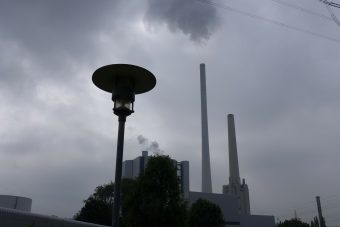
Located on the shores of Lake Erie, the Ontario Power Generation Nanticoke Generating Station was once North America’s largest coal-fired power plant. It was once capable of producing almost 4,000 megawatts at full capacity, but the aging plant has been shuttered since 2013. Now the site is to be re-purposed for a 44-MW solar farm, as part of a larger effort to replace coal with renewable sources, according to Cleantech Canada. The new solar farm is one of many projects stemming from a large solar-procurement project announced last week by Independent Electricity System Operator (IESO), Ontario’s grid operator.
Called the Large Renewable Procurement program, it includes 16 contracts for renewable energy, totalling 454.9 MW of power for the Canadian province. Ontario completed a phase out of coal power in 2014, which included the shutdown of the Nanticoke plant. The site’s redevelopment into a solar farm will be led by Sun Edison Canadian Construction LP, which will partner with Six Nations Development Corp. and Ontario Power Generation. Each of the solar providers involved in the Ontario Large Renewable Procurement program will receive an average 15.67 cents (about 11 cents U.S.) per kilowatt-hour for the energy their sites generate. That means Ontario residents likely won’t get much relief from recent increases in electricity rates. Average electricity costs in the province have risen significantly over the past decade, and some suggest that the phaseout of coal is at least partially to blame.
In November 2015, average peak electricity costs stood at 17.5 cents/kWh (13 cents U.S.), compared to 9.7 cents/kWh (7 cents U.S.) in November 2006, according to the Ontario Energy Board. For off-peak power, residents paid an average 8.3 cents/kWh (6 cents U.S.) in November 2015, compared to 3.4 (3 cents U.S.) cents for the same month in 2006. But regardless of current electricity rates, the long-term environmental benefits of Ontario’s shift away from coal will be worthwhile. The province had no smog days at all in 2015—the first full year of the coal phase out—compared to 53 such days in 2005. Construction of the Nanticoke solar farm will begin once the necessary environmental approvals and contracts are completed.
http://www.greencarreports.com



